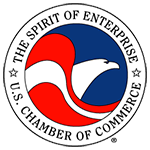American Express to Pay $59.5 Million
CFPB Orders American Express to Pay $59.5 Million for Illegal Credit Card Practices
Federal Regulators Fine American Express an Additional $16.2 Million
WASHINGTON, D.C. — The Consumer Financial Protection Bureau (CFPB) today ordered American Express to refund an estimated $59.5 million to more than 335,000 consumers for illegal credit card practices. These practices included unfair billing tactics and deceptive marketing with respect to credit card “add-on products” such as payment protection and credit monitoring. American Express will pay an additional $9.6 million in civil penalties to the CFPB.
“We first warned companies last year about using deceptive marketing to sell credit card add-on products, and everyone should be on notice of this issue,” said CFPB Director Richard Cordray. “Today we are refunding thousands of American Express customers who were harmed by these illegal practices. Consumers deserve to be treated fairly and should not pay for services they do not receive.”
The Bureau has been coordinating this public action with the Federal Deposit Insurance Corporation (FDIC) and the Office of the Comptroller of the Currency (OCC) to identify and address these issues. The FDIC is fining American Express Centurion Bank $3.6 million and the OCC is fining American Express Bank, FSB $3 million. This is the fourth action the Bureau has taken in coordination with fellow regulators to address illegal practices with respect to credit card add-on products.
Misleading Marketing
CFPB examiners discovered that, beginning in 2000 continuing through 2012, three of American Express’s subsidiaries and their vendors and telemarketers engaged in misleading and deceptive tactics to sell some of the company’s credit card add-on products. One such product, a payment protection product called “Account Protector,” allowed consumers to request that 2.5 percent of their outstanding balance, up to $500, be canceled if they encounter certain life events like unemployment or temporary disability. American Express also marketed its “Lost Wallet” product as being able to assist card members in Puerto Rico with cancelling and replacing lost or stolen credit cards, including non-American Express cards, and providing other services, such as recovering lost or stolen documents. Among other things, American Express misled consumers about:
- The benefits of the payment protection products: Some consumers were led to believe that if they bought the Account Protector product, their minimum monthly payment would be cancelled if they experienced a qualifying life event. In reality, the benefit payment would be limited to 2.5 percent of the consumer’s outstanding balance, up to $500. In many cases, that amount was less than the minimum payment due.
- The length of coverage of the payment protection products: Consumers were led to believe that the benefit periods for Account Protector would last up to 24 months. In fact, only two of the 13 qualifying events with benefit periods had benefit periods of up to 24 months. The other 11 qualifying events had benefit periods of only one, two, or three months.
- The fees associated with payment protection products: American Express or its vendors would claim that there would be no fee if the balance in the account was paid off every month, without disclosing that the account balance had to be paid off before the end of the billing cycle, which was an earlier date than the consumer’s statement due date.
- The terms and conditions of the Lost Wallet product: American Express used telemarketing sales calls conducted in Spanish to enroll the vast majority of Puerto Rico consumers in this product. Yet American Express did not provide uniform Spanish language scripts for these enrollment calls, and all written materials provided to consumers were in English. As a result, American Express did not adequately alert consumers during the calls about the steps necessary to receive and access the full product benefits.
Unfair Billing and Other Illegal Practices
American Express also engaged in unfair billing practices related to its “identity protection” add-on products. These products supposedly include a service to monitor the card members’ credit information. To obtain credit monitoring services, consumers generally must provide written authorization. American Express, however, charged many consumers for these products without or before having the written authorization necessary to perform the monitoring services. As a result, the company:
- Billed consumers for services they did not receive: Consumers were charged fees as soon as they enrolled in identity protection add-on products, even when American Express or its vendors had not yet obtained the authorization necessary to begin monitoring the consumers’ credit information. American Express did not inform consumers that they needed to complete a second step in the enrollment process to obtain all of the advertised benefits. Approximately 85 percent of consumers who enrolled in the identity protection products paid the full product fee without receiving all of the advertised benefits. In some cases, consumers paid for these services for several years without receiving all of the promised benefits.
- Unfairly charged consumers for interest and fees: The unfair monthly fees that customers were charged sometimes resulted in customers exceeding their credit card account limits. This then led to additional fees for the customers. Some consumers also paid interest charges on the fees for services that were never received.
- Failed to inform consumers about their right to a free credit report:Federal law requires that when telemarketing sales calls are made that include offers of free credit reports, the call must include a disclosure about the consumer’s right to a free credit report from a federally authorized source. In some solicitations, American Express did not make the required disclosure.
Enforcement Action
Pursuant to the Dodd-Frank Wall Street Reform and Consumer Protection Act, the CFPB has the authority to take action against institutions engaging in unfair, deceptive, or abusive practices. In accordance with the orders issued today, the American Express subsidiaries have agreed to correct their practices and refund consumers who were harmed by the illegal practices. Specifically, they have agreed to:
- Stop deceptive marketing: American Express must cease selling the Account Protector, Identity Protection, and Lost Wallet Puerto Rico add-on products until it has submitted a compliance plan to the CFPB. The plan will be designed to eliminate all deceptive or unfair practices and violations of other laws relating to the sale, marketing, and administration of these products and to ensure that these unlawful acts do not occur again.
- End unfair billing practices: Consumers will no longer be billed for certain identity protection products if they are not receiving the promised benefits. American Express also must take steps, subject to the Bureau’s approval, to ensure these unlawful acts do not occur in the future.
- Pay restitution of approximately $59.5 million to more than 335,000 consumers who purchased the products: American Express has already provided refunds to many consumers and today’s action requires that American Express make further refunds. These American Express entities will be paying restitution to consumers who purchased the Account Protector, Identity Protection, or Lost Wallet Puerto Rico add-on products. American Express must submit a plan for remediation to the Bureau. Once the Bureau has reviewed the plan, the American Express entities must begin promptly implementing the remediation.
- Provide refunds or credits without any further action by consumers: If the consumers are still American Express customers, they will receive a credit to their accounts. If they are no longer an American Express credit card holder, they will receive checks in the mail. Consumers are not required to take any action to receive their credit or check.
- Submit to an independent review: An independent third-party will help ensure the refunds have been provided in compliance with the terms set forth in the CFPB’s order.
- Review other credit card add-on products: American Express must hire an independent third-party to review American Express’s other credit card add-on products for compliance with federal consumer financial laws. If any compliance issues are found, American Express must submit a plan to the Bureau explaining how it will correct those violations and provide remediation if necessary.
- Improve oversight of third-party vendors: The CFPB is also requiring that American Express continue to strengthen its management of third-party vendors who manage these add-on products.
- Pay a $9.6 million penalty: The CFPB has ordered that American Express pay a $9.6 million fine to the Bureau’s Civil Penalty Fund.
Source: Consumerfinance.gov


